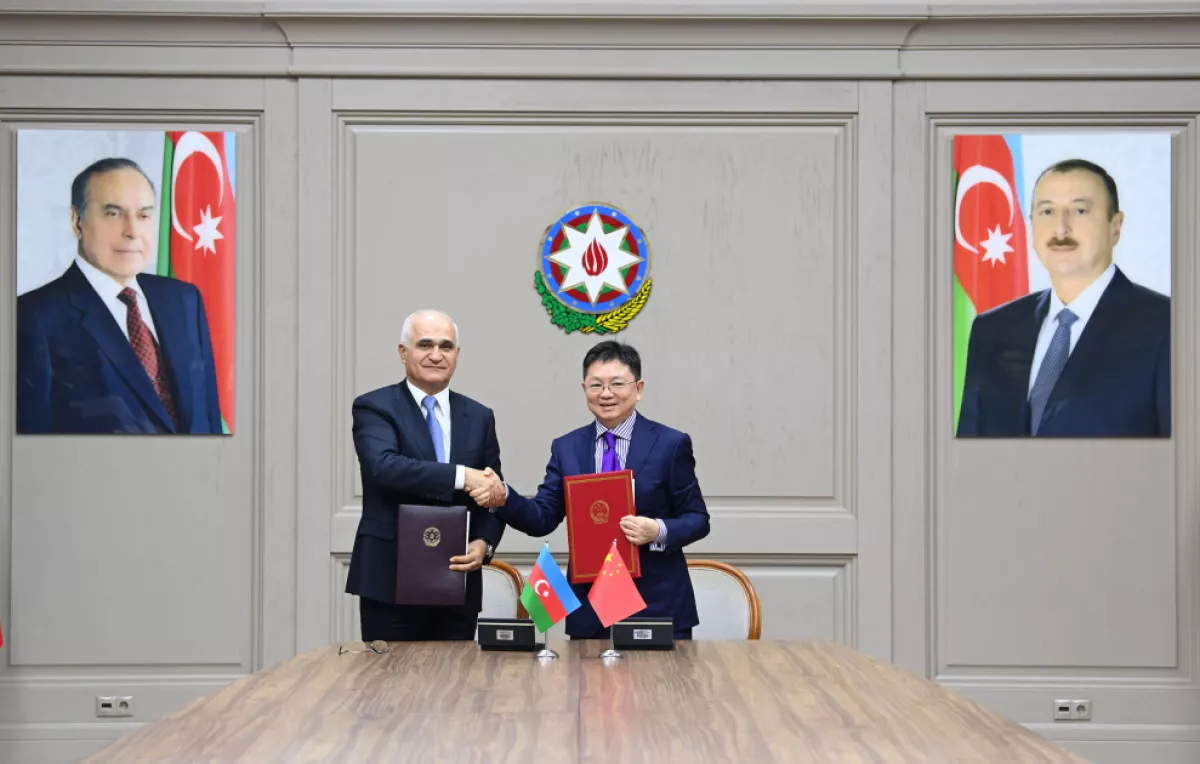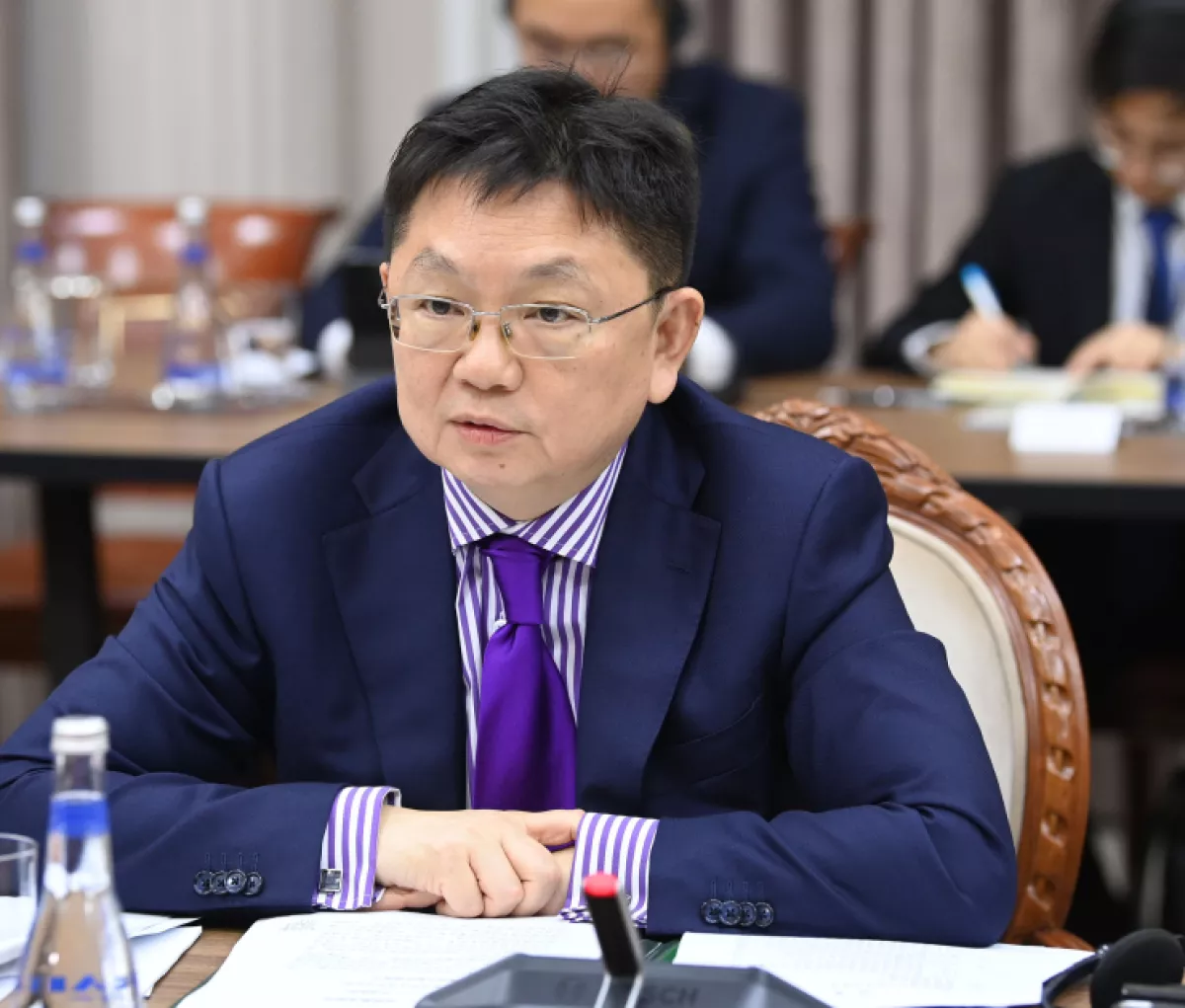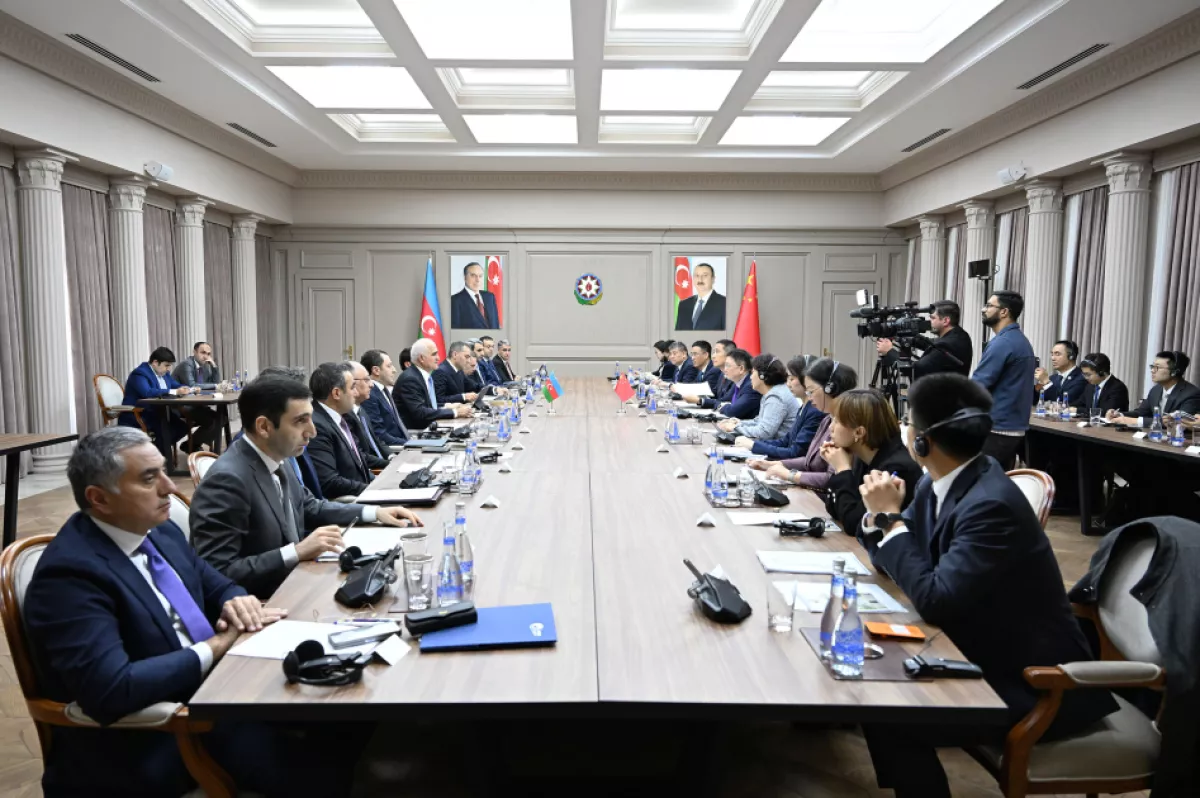Azerbaijan, China diversify business ties Investment takes priority
In recent years, relations between Azerbaijan and China have evolved into a strategic partnership with a strong focus on expanding trade and economic ties. Alongside the dynamic growth in bilateral trade, the two friendly nations have been accelerating joint initiatives in industry, transport, information technology, and green energy, while also strengthening the investment component of their cooperation. These efforts culminated in the agreements reached during the 10th meeting of the Intergovernmental Commission on Trade and Economic Cooperation between Azerbaijan and China, held in Baku.
Meetings and negotiations between Azerbaijani President Ilham Aliyev and Chinese President Xi Jinping in recent years have played a crucial role in strengthening bilateral ties between the two countries, which have now entered a dynamic and comprehensive stage of development. Thanks to the efforts of both leaders, relations between the two nations have been elevated to the level of a strategic partnership.
For many years, Azerbaijan has been China’s largest trading partner in the South Caucasus region, accounting for over 40% of the region’s total trade with the People’s Republic. These mutually beneficial and forward-looking economic ties have propelled China to fourth place among Azerbaijan’s foreign trade partners and second among importing countries.
Notably, in 2023, trade between the two countries surged by 44%, reaching a post-pandemic record of $3.1 billion. This positive momentum continued last year, with bilateral trade increasing by a further 21% to reach $3.7 billion. Even greater growth was recorded in the first quarter of 2025, with Azerbaijan–China trade volumes rising by 37% to exceed $1.02 billion.
Traditionally, the bulk of trade between Azerbaijan and China has consisted of a wide range of Chinese-manufactured goods. However, in recent years, Azerbaijani exports to the Chinese market have shown notable growth. Judging by the outcomes of the recently held 10th meeting of the Intergovernmental Commission in Baku, this upward trend is set to continue.
As noted by Deputy Prime Minister Shahin Mustafayev, co-chair of the commission, the ongoing talks serve as an important platform for discussing the implementation of directives issued by the two heads of state, as well as for identifying near-term prospects for the development of business ties between Azerbaijan and China.

First and foremost, Azerbaijan is keen to boost its exports to China, particularly in the agricultural and food sectors. At present, the volume of Azerbaijani exports to the Chinese market remains relatively modest. The export structure is traditionally dominated by petroleum coke, aviation kerosene, primary polyethylene, and other petrochemical products. Azerbaijani exporters also supply food and wine products, cotton fibre, perfumes, and, to a lesser extent, various types of industrial equipment and components manufactured in the country’s industrial clusters.
According to Ling Ji, China’s Vice Minister of Commerce and Representative for International Trade Negotiations, Beijing is interested in increasing both the volume and variety of imports from Azerbaijan. He specifically highlighted the growing demand for pomegranate fruits and processed products, Azerbaijani wines, and noted the strong export potential of Azerbaijani poultry meat, hazelnuts, and almonds in the Chinese market.
In addition, Ling Ji expressed support for Azerbaijan’s efforts to join the World Trade Organisation (WTO) and affirmed China’s readiness to cooperate with the Azerbaijani government in this direction.

An equally promising instrument for expanding bilateral trade ties—including boosting Azerbaijan’s exports—is the proposal made by the Chinese side during the Commission meeting to increase the number of Azerbaijani trade houses in China.
It is worth noting that, in order to promote non-oil products under the “Made in Azerbaijan” brand in the vast Chinese market, a wide network of trade and wine houses has been established in China through the initiative of the Azerbaijan Export and Investment Promotion Agency (AZPROMO). Specifically, Azerbaijani trade houses are currently operating in Qingdao, Chengdu, Xi’an, Zhangjiajie, and, since May 2024, in Nanjing. In addition, Azerbaijani trade house branches have been set up in Shanghai, Harbin, Jinan, and Wuhan, while three wine houses are operating in Ürümqi and Shanghai.
Trade expansion undoubtedly remains one of the long-term priorities in Azerbaijan–China cooperation. However, in recent years, both countries have increasingly focused on the investment component and the establishment of joint ventures in the manufacturing sector.
To date, around 275 companies with Chinese capital have been registered in Azerbaijan, and Chinese investments in the country have reached $942 million. At the same time, Azerbaijani investments in China—including funds from the State Oil Fund of Azerbaijan (SOFAZ)—have totalled approximately $2.1 billion.
Recently, Baku and Beijing have made notable progress in investment cooperation across various sectors, including industry, oil and gas, petrochemicals, green energy, high technology, innovation, and the space industry. Notably, last year a framework agreement was signed with China’s BYD Company Limited for the purchase of electric buses, localisation of their assembly in Azerbaijan, and the creation of charging and service infrastructure.
Over time, the agreement with BYD is expected to pave the way for the production of electric freight and municipal vehicles, and by 2028, for the assembly of energy storage batteries. As noted during the Intergovernmental Commission meeting, the upcoming visit of Azerbaijani President Ilham Aliyev to China will mark the official launch of the electric bus production localisation project in partnership with BYD.
As Deputy Prime Minister Shahin Mustafayev noted, cooperation between the two countries in the field of green energy is a strategic priority: “Azerbaijan has significant potential in renewable energy sources (RES), while China possesses extensive technological resources and rich experience in this field.”
Looking ahead, Baku and Beijing plan to implement renewable energy projects with a combined capacity of 2 GW. This effort is already underway, with Chinese companies participating in the construction of a 160 MW solar power plant in Fuzuli.
Cooperation in sericulture has also proven effective: as part of one of the joint projects, 130,000 mulberry saplings have already been delivered to the city of Khojaly. The initiative is expected to yield positive results and contribute to the revitalisation of the liberated territories.
The further development of this investment trend was a key topic during the Intergovernmental Commission meeting in Baku. Following the discussions, a Memorandum of Understanding was signed, and it was agreed to establish a working group to coordinate investment projects and enhance cooperation in the development of joint ventures.

Another promising area of Azerbaijan–China business relations is cooperation in the transport and logistics sector. It can undoubtedly be stated that China is Azerbaijan’s key partner in expanding the transit capabilities of the Middle Corridor. As Deputy Prime Minister Shahin Mustafayev noted, in 2024, the volume of transit shipments between Azerbaijan and China increased by 86% (378,000 tons).
Azerbaijan intends to significantly expand the volume of transshipment along the Middle Corridor. To achieve this, large-scale projects are being implemented to develop transport infrastructure and enhance transit potential. These include the modernisation of the Baku International Sea Trade Port, the Baku-Tbilisi-Kars railway line, and other transport corridors. Both Baku and Beijing are also keen to expedite the implementation of the Zangezur Corridor, which will contribute significantly to China’s Belt and Road Initiative and become an integral part of the Middle Corridor.
All of these projects provide the shortest and most efficient route from China to Europe and back.
During the Intergovernmental Commission meeting, the successful development of bilateral relations in the tourism sector was highlighted, with an emphasis on the dynamic growth of mutual tourist flows from China. In the previous year, Azerbaijan was visited by 44,798 tourists from China, which was double the number recorded in 2023. An important factor in this growth was Azerbaijan’s unilateral abolition of the visa regime for Chinese citizens entering the country. During the upcoming visit of President Ilham Aliyev to China, the signing of an Agreement on Mutual Visa-Free Travel is expected.








